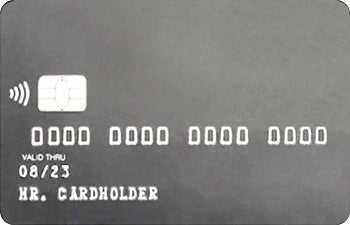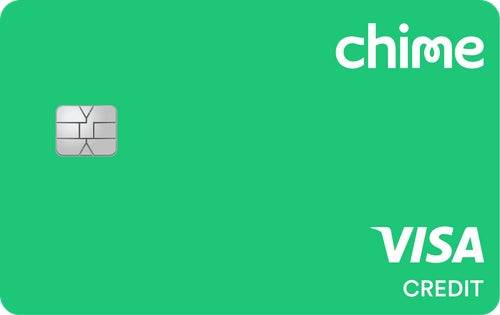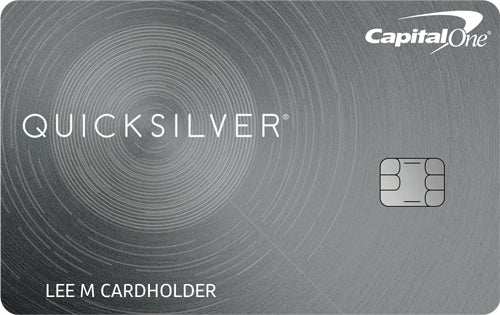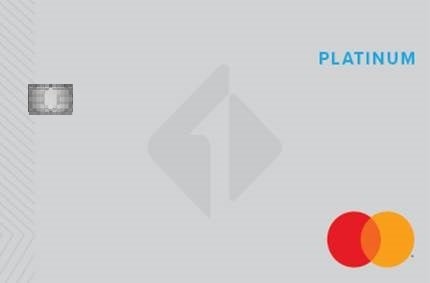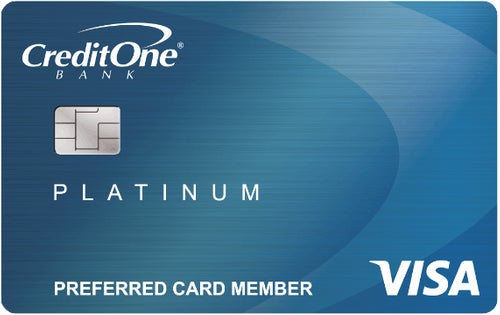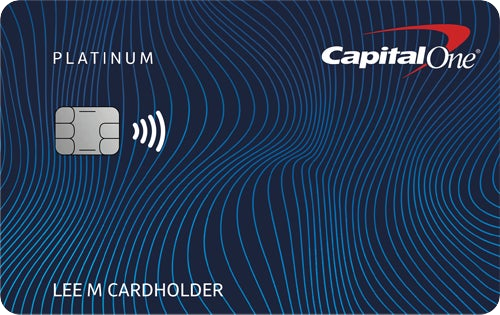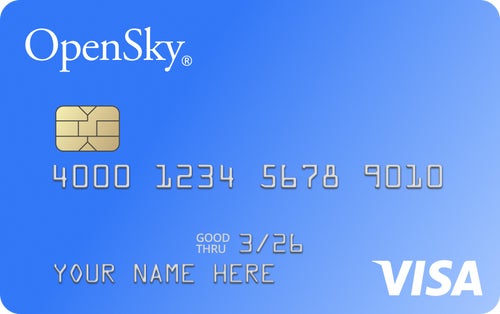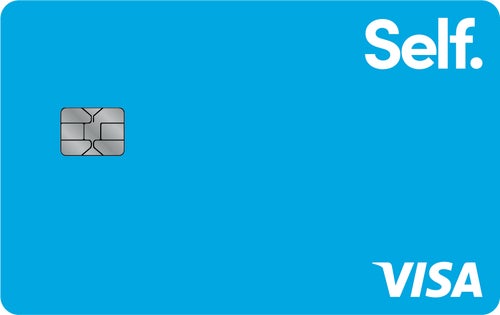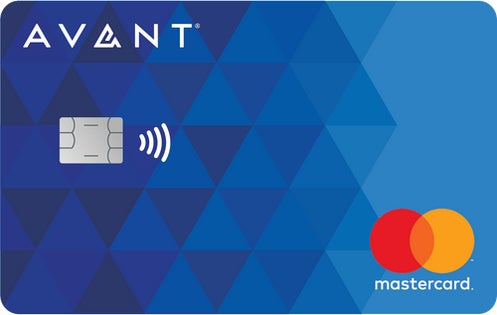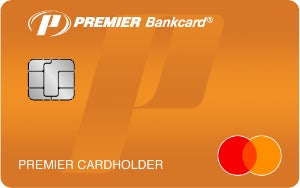If you have less-than-perfect credit or are just beginning your credit journey, the selection of cards available to you will be smaller. Credit cards tailored to people with poor credit -- usually defined as a credit score under 580 -- won’t provide high credit limits and great rewards, but they can help you rebuild your credit. Once your credit improves, you may be able to move on to better credit card offers in the future.
Most cards available to people with lower credit are secured credit cards, which require a deposit that typically serves as your starting credit line. There are also a few traditional cards available, where your credit line is determined by income and housing payment rather than credit. Just watch out for cards with high fees and annual percentage rates because they’re more expensive to manage and can lead to greater debt.
Best credit cards for bad credit
There’s a reason the the Discover it® Secured Credit Card* sits at the top of this list and our best secured credit card list.
It offers the best value if you’re looking to rebuild your credit score with responsible use. This card has no annual fee, no credit requirement, earns rewards and features one of the best welcome bonuses available.
It’s a secured card, which means you’ll need to provide a refundable security deposit of $200 or more.
When rebuilding credit using secured cards, your card’s credit limit typically matches your deposit. It may be low at first, but Discover will automatically review your account starting at seven months to determine if you can transition to an unsecured line of credit and have your deposit returned.
In addition to credit building and the opportunity to get upgraded to an unsecured card, the Discover it® Secured Credit Card is a great cash-back rewards card for this credit level.
Discover will also give you a Cashback Match™ at the end of your first year, which could essentially double the rewards you earned.
You can read our full review of the Discover it® Secured Credit Card for more details.
- Intro Balance Transfer APR
- 10.99% for 6 months
- Intro Purchase APR
- N/A
- Regular APR
- 28.24% Variable APR
- Balance Transfer Fee
- 3% intro balance transfer fee, up to 5% fee on future balance transfers (see terms)*
There’s a reason the the Discover it® Secured Credit Card* sits at the top of this list and our best secured credit card list.
It offers the best value if you’re looking to rebuild your credit score with responsible use. This card has no annual fee, no credit requirement, earns rewards and features one of the best welcome bonuses available.
It’s a secured card, which means you’ll need to provide a refundable security deposit of $200 or more.
When rebuilding credit using secured cards, your card’s credit limit typically matches your deposit. It may be low at first, but Discover will automatically review your account starting at seven months to determine if you can transition to an unsecured line of credit and have your deposit returned.
In addition to credit building and the opportunity to get upgraded to an unsecured card, the Discover it® Secured Credit Card is a great cash-back rewards card for this credit level.
Discover will also give you a Cashback Match™ at the end of your first year, which could essentially double the rewards you earned.
You can read our full review of the Discover it® Secured Credit Card for more details.
- Intro Balance Transfer APR
- 10.99% for 6 months
- Intro Purchase APR
- N/A
- Regular APR
- 28.24% Variable APR
- Balance Transfer Fee
- 3% intro balance transfer fee, up to 5% fee on future balance transfers (see terms)*
Chime may be best known for its free online checking account which offers no overdraft fees, account minimums or other hidden charges. But wait -- why are we even talking about a checking account here? Well, Chime offers a Chime Credit Builder Secured Visa® Credit Card that’s fairly unique and pairs up with its checking account. The Chime Credit Builder Secured Visa is technically a secured card -- it requires a deposit and reports payment activity to the credit bureaus -- but functions like a prepaid debit card, in that you load money onto your card through your Chime checking account and there’s no interest** to worry about.
To apply for Credit Builder, you must have received a single qualifying direct deposit of $200 or more to your Chime Checking Account. The qualifying direct deposit must be from your employer, payroll provider, gig economy payer, or benefits payer by Automated Clearing House (ACH) deposit OR Original Credit Transaction (OCT). Bank ACH transfers, Pay Anyone transfers, verification or trial deposits from financial institutions, peer to peer transfers from services such as PayPal, Cash App, or Venmo, mobile check deposits, cash loads or deposits, one-time direct deposits, such as tax refunds and other similar transactions, and any deposit to which Chime deems to not be a qualifying direct deposit are not qualifying direct deposits.
The secured Chime Credit Builder Visa® Credit Card is issued by The Bancorp Bank, N.A. or Stride Bank, N.A., Members FDIC, pursuant to a license from Visa U.S.A. Inc. and may be used everywhere Visa credit cards are accepted. Please see the back of your card for its issuing bank.
- Intro Balance Transfer APR
- N/A
- Intro Purchase APR
- N/A
- Regular APR
- N/A
- Balance Transfer Fee
- N/A
Chime may be best known for its free online checking account which offers no overdraft fees, account minimums or other hidden charges. But wait -- why are we even talking about a checking account here? Well, Chime offers a Chime Credit Builder Secured Visa® Credit Card that’s fairly unique and pairs up with its checking account. The Chime Credit Builder Secured Visa is technically a secured card -- it requires a deposit and reports payment activity to the credit bureaus -- but functions like a prepaid debit card, in that you load money onto your card through your Chime checking account and there’s no interest** to worry about.
To apply for Credit Builder, you must have received a single qualifying direct deposit of $200 or more to your Chime Checking Account. The qualifying direct deposit must be from your employer, payroll provider, gig economy payer, or benefits payer by Automated Clearing House (ACH) deposit OR Original Credit Transaction (OCT). Bank ACH transfers, Pay Anyone transfers, verification or trial deposits from financial institutions, peer to peer transfers from services such as PayPal, Cash App, or Venmo, mobile check deposits, cash loads or deposits, one-time direct deposits, such as tax refunds and other similar transactions, and any deposit to which Chime deems to not be a qualifying direct deposit are not qualifying direct deposits.
The secured Chime Credit Builder Visa® Credit Card is issued by The Bancorp Bank, N.A. or Stride Bank, N.A., Members FDIC, pursuant to a license from Visa U.S.A. Inc. and may be used everywhere Visa credit cards are accepted. Please see the back of your card for its issuing bank.
- Intro Balance Transfer APR
- N/A
- Intro Purchase APR
- N/A
- Regular APR
- N/A
- Balance Transfer Fee
- N/A
With the Capital One Quicksilver Secured Cash Rewards Credit Card*, you could rebuild your credit with responsible use and while earning a solid return on your spending. In exchange for a one-time, refundable security deposit of $200 to $3,000, you earn 1.5% cash back for your purchases.
The security deposit will form your credit limit, so deposit as much as you’re comfortable with. According to Capital One, the security deposit could be refunded as a statement credit (applied to your credit account, lowering any balance you may have on it) following responsible behavior. Responsible behavior means using the card regularly and paying it off on time each month.
- Intro Balance Transfer APR
- N/A
- Intro Purchase APR
- N/A
- Regular APR
- 29.99% (Variable)
- Balance Transfer Fee
- $0 at the Transfer APR, 4% of the amount of each transferred balance that posts to your account at a promotional APR that Capital One may offer to you
With the Capital One Quicksilver Secured Cash Rewards Credit Card*, you could rebuild your credit with responsible use and while earning a solid return on your spending. In exchange for a one-time, refundable security deposit of $200 to $3,000, you earn 1.5% cash back for your purchases.
The security deposit will form your credit limit, so deposit as much as you’re comfortable with. According to Capital One, the security deposit could be refunded as a statement credit (applied to your credit account, lowering any balance you may have on it) following responsible behavior. Responsible behavior means using the card regularly and paying it off on time each month.
- Intro Balance Transfer APR
- N/A
- Intro Purchase APR
- N/A
- Regular APR
- 29.99% (Variable)
- Balance Transfer Fee
- $0 at the Transfer APR, 4% of the amount of each transferred balance that posts to your account at a promotional APR that Capital One may offer to you
Most cards designed to rebuild credit offer minimum rewards. The First Tech Platinum Secured Mastercard®* is one of the rare cards that doesn’t demand a high FICO score to deliver premium travel perks. Despite its secured nature, there are no foreign transaction fees to worry about when you travel overseas. You’ll also have access to rental coverage and travel insurance for lost or damaged luggage and trip cancellation.
The purchases you make can earn up to one point for every dollar spent. As with a typical rewards card, the points can be redeemed for travel, merchandise and more. And if you keep up the responsible spending and payment habits, your security deposit could be refunded.
- Intro Balance Transfer APR
- N/A
- Intro Purchase APR
- N/A
- Regular APR
- 13.50% to 18.00% (Variable) when you open your account, based on your credit worthiness
- Balance Transfer Fee
- None
Most cards designed to rebuild credit offer minimum rewards. The First Tech Platinum Secured Mastercard®* is one of the rare cards that doesn’t demand a high FICO score to deliver premium travel perks. Despite its secured nature, there are no foreign transaction fees to worry about when you travel overseas. You’ll also have access to rental coverage and travel insurance for lost or damaged luggage and trip cancellation.
The purchases you make can earn up to one point for every dollar spent. As with a typical rewards card, the points can be redeemed for travel, merchandise and more. And if you keep up the responsible spending and payment habits, your security deposit could be refunded.
- Intro Balance Transfer APR
- N/A
- Intro Purchase APR
- N/A
- Regular APR
- 13.50% to 18.00% (Variable) when you open your account, based on your credit worthiness
- Balance Transfer Fee
- None
The Credit One Bank® Platinum Visa® for Rebuilding Credit* is known to approve applicants with average or below-average FICO scores. There is no need to set aside part of your savings to serve as collateral. While the annual fee is definitely a cost you should weigh carefully, if you’re able to maximize your cash-back rewards, you could make up for this fee in rewards earned.
Credit One Bank reports your payment history to the three credit bureaus and automatically reviews your payment history regularly to potentially increase your credit limit. A higher credit limit can improve your credit utilization ratio, an important part of your FICO score. The more unused credit available to you, the faster you can work toward rebuilding credit. For the concept to work, avoid the temptation to spend more.
- Intro Balance Transfer APR
- N/A
- Intro Purchase APR
- N/A
- Regular APR
- 29.74% Variable
- Balance Transfer Fee
- N/A
The Credit One Bank® Platinum Visa® for Rebuilding Credit* is known to approve applicants with average or below-average FICO scores. There is no need to set aside part of your savings to serve as collateral. While the annual fee is definitely a cost you should weigh carefully, if you’re able to maximize your cash-back rewards, you could make up for this fee in rewards earned.
Credit One Bank reports your payment history to the three credit bureaus and automatically reviews your payment history regularly to potentially increase your credit limit. A higher credit limit can improve your credit utilization ratio, an important part of your FICO score. The more unused credit available to you, the faster you can work toward rebuilding credit. For the concept to work, avoid the temptation to spend more.
- Intro Balance Transfer APR
- N/A
- Intro Purchase APR
- N/A
- Regular APR
- 29.74% Variable
- Balance Transfer Fee
- N/A
Most secured cards will require you to pay a security deposit equivalent to your credit limit. The Capital One Platinum Secured Credit Card* will give you a starting credit limit of $200 but has three deposit tiers of $49, $99 or $200. This card doesn’t come with a lot of other frills -- no rewards or welcome bonus -- but it’s a great option for rebuilding your credit with responsible use.
In addition to potentially low deposit requirements, Capital One performs an automatic review of your account after the first six months to determine whether to increase your credit limit. And, you can receive your secured deposit back as a statement credit after a steady history of on-time payments.
You can also read our full review of the Capital One Platinum Secured Credit Card.
- Intro Balance Transfer APR
- N/A
- Intro Purchase APR
- N/A
- Regular APR
- 29.99% (Variable)
- Balance Transfer Fee
- $0 at the Transfer APR, 4% of the amount of each transferred balance that posts to your account at a promotional APR that Capital One may offer to you
Most secured cards will require you to pay a security deposit equivalent to your credit limit. The Capital One Platinum Secured Credit Card* will give you a starting credit limit of $200 but has three deposit tiers of $49, $99 or $200. This card doesn’t come with a lot of other frills -- no rewards or welcome bonus -- but it’s a great option for rebuilding your credit with responsible use.
In addition to potentially low deposit requirements, Capital One performs an automatic review of your account after the first six months to determine whether to increase your credit limit. And, you can receive your secured deposit back as a statement credit after a steady history of on-time payments.
You can also read our full review of the Capital One Platinum Secured Credit Card.
- Intro Balance Transfer APR
- N/A
- Intro Purchase APR
- N/A
- Regular APR
- 29.99% (Variable)
- Balance Transfer Fee
- $0 at the Transfer APR, 4% of the amount of each transferred balance that posts to your account at a promotional APR that Capital One may offer to you
If you’re looking to avoid any dings on your credit score, the OpenSky® Secured Visa® Credit Card would be a good choice. There’s no credit check necessary to apply, just a one-time, refundable security deposit of $200 to $3,000 upon approval, which will act as your credit limit. There is also a $35 annual fee.
OpenSky will report your behavior to the three major credit bureaus so be sure you’re making all of your payments on time to build your credit. It’s worth noting that there are other secured cards that do the same but ask for no annual fee, and even some that earn rewards.
- Intro Balance Transfer APR
- N/A
- Intro Purchase APR
- N/A
- Regular APR
- 25.64% (variable)
- Balance Transfer Fee
- N/A
If you’re looking to avoid any dings on your credit score, the OpenSky® Secured Visa® Credit Card would be a good choice. There’s no credit check necessary to apply, just a one-time, refundable security deposit of $200 to $3,000 upon approval, which will act as your credit limit. There is also a $35 annual fee.
OpenSky will report your behavior to the three major credit bureaus so be sure you’re making all of your payments on time to build your credit. It’s worth noting that there are other secured cards that do the same but ask for no annual fee, and even some that earn rewards.
- Intro Balance Transfer APR
- N/A
- Intro Purchase APR
- N/A
- Regular APR
- 25.64% (variable)
- Balance Transfer Fee
- N/A
The Self Secured Visa® Credit Card works a bit differently than most secured cards. To qualify, you’ll first need to have a Self – Credit Builder Account. It’s a credit builder loan with monthly payments. You pledge to pay either $25 or $35 over 24 months, or $48 or $150 over 12 months. At the end of the period, you’ll have an established credit history and will receive a pay out of $520, $724, $539 or $1,663 respectively.
Upon making three monthly payments on time, having more than $100 in savings progress (made by making your payments) and having an account in good standing, you’ll be eligible for the Self Visa Credit Card. There’s no hard credit check required and your $100 in savings will be used to set your credit limit. You can choose to have more than $100 for your credit limit, but it depends on your savings progress.
So it takes a bit more time and effort than a standard credit card, but it does help reinforce good habits that could set you on the path toward better credit. You could also potentially receive a credit limit increase following good card habits, which means using the card regularly and making your payments on time.
- Intro Balance Transfer APR
- N/A
- Intro Purchase APR
- N/A
- Regular APR
- 26.99% (Variable)
- Balance Transfer Fee
- N/A
The Self Secured Visa® Credit Card works a bit differently than most secured cards. To qualify, you’ll first need to have a Self – Credit Builder Account. It’s a credit builder loan with monthly payments. You pledge to pay either $25 or $35 over 24 months, or $48 or $150 over 12 months. At the end of the period, you’ll have an established credit history and will receive a pay out of $520, $724, $539 or $1,663 respectively.
Upon making three monthly payments on time, having more than $100 in savings progress (made by making your payments) and having an account in good standing, you’ll be eligible for the Self Visa Credit Card. There’s no hard credit check required and your $100 in savings will be used to set your credit limit. You can choose to have more than $100 for your credit limit, but it depends on your savings progress.
So it takes a bit more time and effort than a standard credit card, but it does help reinforce good habits that could set you on the path toward better credit. You could also potentially receive a credit limit increase following good card habits, which means using the card regularly and making your payments on time.
- Intro Balance Transfer APR
- N/A
- Intro Purchase APR
- N/A
- Regular APR
- 26.99% (Variable)
- Balance Transfer Fee
- N/A
The Avant Credit Card offers cardholders a chance to rebuild their credit with responsible use. This unsecured credit card charges an annual fee of $59 and has a credit limit of $300. The card reports to the three major credit bureaus, so as long as you make your payments on time, your credit score should improve.
- Intro Balance Transfer APR
- N/A
- Intro Purchase APR
- N/A
- Regular APR
- 35.99% Variable
- Balance Transfer Fee
- N/A
The Avant Credit Card offers cardholders a chance to rebuild their credit with responsible use. This unsecured credit card charges an annual fee of $59 and has a credit limit of $300. The card reports to the three major credit bureaus, so as long as you make your payments on time, your credit score should improve.
- Intro Balance Transfer APR
- N/A
- Intro Purchase APR
- N/A
- Regular APR
- 35.99% Variable
- Balance Transfer Fee
- N/A
Mission Lane Visa® Credit Card
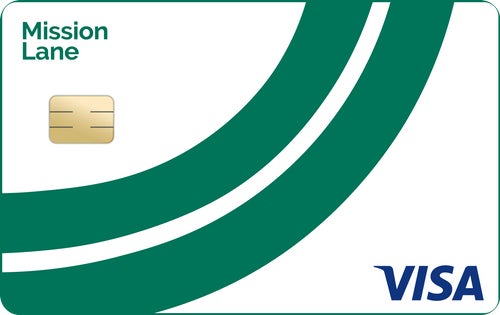
The Mission Lane Visa® Credit Card is another tool to use to rebuild your credit. You can monitor your credit score, access credit-building educational resources and be automatically considered for a higher credit line in as few as seven months. You can check to see if you’re pre-qualified before putting in a formal application.
- Intro Balance Transfer APR
- N/A
- Intro Purchase APR
- N/A
- Regular APR
- 26.99% – 29.99% (Variable)
- Balance Transfer Fee
- N/A
The Mission Lane Visa® Credit Card is another tool to use to rebuild your credit. You can monitor your credit score, access credit-building educational resources and be automatically considered for a higher credit line in as few as seven months. You can check to see if you’re pre-qualified before putting in a formal application.
- Intro Balance Transfer APR
- N/A
- Intro Purchase APR
- N/A
- Regular APR
- 26.99% – 29.99% (Variable)
- Balance Transfer Fee
- N/A
Credit cards for bad credit that we don’t recommend
You might see other credit cards advertised to help you improve your credit, but watch out for high fees, high security deposit requirements and higher-than-average APRs that can cost you even more if you carry a balance. Here are a few cards that can help you build your credit, but we only recommend applying for them if you’re unable to qualify for one of the above picks.
The Destiny Mastercard is commonly advertised as a card for bad credit, but it’s a relatively expensive option, with potentially high annual fees and a high 35.90% APR, which is why we don’t recommend it. Its $700 credit limit is also small, and its high annual fee is deducted from your limit, bringing it down significantly. There are more affordable cards that do the same thing -- such as the Discover it® Secured Credit Card– that you may want to consider first.
- Intro Balance Transfer APR
- N/A
- Intro Purchase APR
- N/A
- Regular APR
- See terms*
- Balance Transfer Fee
- N/A
The Destiny Mastercard is commonly advertised as a card for bad credit, but it’s a relatively expensive option, with potentially high annual fees and a high 35.90% APR, which is why we don’t recommend it. Its $700 credit limit is also small, and its high annual fee is deducted from your limit, bringing it down significantly. There are more affordable cards that do the same thing -- such as the Discover it® Secured Credit Card– that you may want to consider first.
- Intro Balance Transfer APR
- N/A
- Intro Purchase APR
- N/A
- Regular APR
- See terms*
- Balance Transfer Fee
- N/A
The Milestone Mastercard is an unsecured credit card meant to help establish a better credit score. Since it’s unsecured -- meaning it doesn’t require a security deposit -- you won’t have to make any initial deposits. However, it carries a higher-than-average APR and steep annual fee. Other cards on our list offer similar benefits with a lower price tag.
- Intro Balance Transfer APR
- N/A
- Intro Purchase APR
- N/A
- Regular APR
- See terms*
- Balance Transfer Fee
- N/A
The Milestone Mastercard is an unsecured credit card meant to help establish a better credit score. Since it’s unsecured -- meaning it doesn’t require a security deposit -- you won’t have to make any initial deposits. However, it carries a higher-than-average APR and steep annual fee. Other cards on our list offer similar benefits with a lower price tag.
- Intro Balance Transfer APR
- N/A
- Intro Purchase APR
- N/A
- Regular APR
- See terms*
- Balance Transfer Fee
- N/A
The PREMIER Bankcard® Mastercard® Credit Card* offers a way to build credit with multiple starting credit limits, based on your creditworthiness. However, there are a ton of fees: monthly, annual and a one-time initial program fee based on your credit limit.
For example, if you’re approved with a starting credit limit of $200, you’ll need to pay a one-time program fee of $95, plus $50 annually for the first year (then $45), on top of a monthly fee of $6.25 ($75 annually) after the first year and you’ll start with a credit limit of $150 until the following year.
The highest credit limit is $700 with an initial program fee of $55, an annual fee of $79 the first year then $49, and a monthly payment of $8 ($96 annually) for the first year then $10.40 ($124.80 annually). It also carries an APR of 36%, which is ridiculously high. Suffice to say you’d be better off choosing a different card to build credit with.
- Intro Balance Transfer APR
- N/A
- Intro Purchase APR
- N/A
- Regular APR
- N/A
- Balance Transfer Fee
- N/A
The PREMIER Bankcard® Mastercard® Credit Card* offers a way to build credit with multiple starting credit limits, based on your creditworthiness. However, there are a ton of fees: monthly, annual and a one-time initial program fee based on your credit limit.
For example, if you’re approved with a starting credit limit of $200, you’ll need to pay a one-time program fee of $95, plus $50 annually for the first year (then $45), on top of a monthly fee of $6.25 ($75 annually) after the first year and you’ll start with a credit limit of $150 until the following year.
The highest credit limit is $700 with an initial program fee of $55, an annual fee of $79 the first year then $49, and a monthly payment of $8 ($96 annually) for the first year then $10.40 ($124.80 annually). It also carries an APR of 36%, which is ridiculously high. Suffice to say you’d be better off choosing a different card to build credit with.
- Intro Balance Transfer APR
- N/A
- Intro Purchase APR
- N/A
- Regular APR
- N/A
- Balance Transfer Fee
- N/A
What is a credit card for bad credit?
A credit card designed for people with bad credit typically has more relaxed approval requirements. These credit cards usually don’t have lucrative rewards or a variety of card perks, but their primary function is to improve your credit so you can eventually apply for the credit cards that do.
How to determine if your credit score is ‘bad’
There are a number of different credit designations based on different scoring models. The two most common models are FICO and VantageScore. Here’s a breakdown of their respective ranges:
| FICO | VantageScore |
|---|---|
| Poor: 300 to 579 | Very Poor: 300 to 499 |
| Fair: 580 to 669 | Poor: 500 to 600 |
| Good: 670 to 739 | Fair: 601 to 660 |
| Very Good: 740 to 799 | Good: 661 to 780 |
| Exceptional: 800 to 850 | Excellent: 781 to 850 |
The easiest way to find out where you fall is by utilizing a free credit check. You’re able to request your credit reports -- a summary of your credit and payment history used to generate your credit score -- from each of the three major credit bureaus (Equifax, TransUnion and Experian) once a week for free from annualcreditreport.com.
Or, if you’re already a cardholder, most credit card issuers, including American Express, Discover and Bank of America, provide a free look at your credit score. Capital One’s CreditWise tool is also accessible to everyone, not just Capital One cardholders.
Who should get a credit card for bad credit?
If your credit score is less than 670, you should consider finding a credit card that can help repair it.
Your credit score helps lenders decide whether you’re a responsible borrower who repays your loans on time as agreed. It determines what kind of loan terms you get on mortgages, student loans, credit cards and auto loans. It’s among the most important facets of your finances.
Pros and cons of getting a credit card for bad credit
Pros
Improve your credit score
Learn good credit habits
Get prepared to move on to more advanced credit cards
Cons
Few additional features like rewards and card perks
Credit-builder cards can have a high APR
You can further damage your credit score if you aren’t ready to use a card responsibly
How to choose the right credit card if you have bad credit
Choosing the right credit-building card will come down to your qualifications and ability to build credit. You’ll also want to make sure there are no hidden fees, opt for rewards when possible and look for opportunities to upgrade your card with responsible use.
Eligibility
Credit cards for people with bad credit usually have fewer requirements for approval. Some cards consider your income more so than your credit, or will look at your spending habits via your bank account to determine how risky of a borrower you’d be.
You can also consider a secured credit card. Secured credit cards operate the same as an unsecured credit card (which is your standard credit card), only they require a one-time security deposit upon approval as collateral in lieu of good credit. The security deposit is usually refundable upon sufficient responsible use, and it’ll form your starting credit limit.
Credit building and reporting
Make sure the card reports your activity to the credit bureaus to help you build your credit. The best way to build credit quickly is by having a history of on-time payments on a credit card or loan. Pay your credit card statement in full each month and don’t use more than 30% of your credit limit for the best results.
Fees
Sometimes credit cards for people with bad credit can have hidden or high punitive fees. Check the card terms before applying to make sure the card you’re interested in doesn’t have any monthly maintenance fees, high penalty fees, annual fees or anything of the sort. There are plenty of good options available that don’t feature any of that ilk.
Ability to upgrade
While this mostly applies to secured credit cards, there are some unsecured credit cards with upgrade paths as well. If you’ve shown responsible use while using either a secured card or an unsecured card for people with limited credit, the issuer may offer you an upgrade to a stronger card. Responsible use typically translates to using your card regularly and paying it off on time.
How to get a credit card if you have bad credit
If you have bad credit, you have two choices to get a credit card: You can choose a card that’s designed for those with bad credit -- like the ones above -- or you can work to improve your credit so that you can qualify for a card with better benefits. There are cards for those with fair credit or good credit that offer cash-back rewards, introductory APRs, welcome bonuses and travel perks.
To reach “fair” credit, you’ll need to have a credit score of at least 580. You reach “good credit” when you maintain at least a 670 score, which unlocks even better credit card options. There are a few techniques you can apply to your credit card usage that will help grow your score.
How to effectively use a credit-building card
The best way to build credit is to establish a history of on-time payments. So long as you never miss a payment, your credit score should improve. The other thing to remember is to use your credit card like it’s a debit card. That means not spending money you don’t have.
If you overspend and carry a balance, you’ll start accruing expensive interest charges. Credit card debt is much easier to get into than it is to get out of. By paying off the purchases on your card right away, you won’t have to worry about interest charges or credit card debt. Here’s what to remember:
- Make your credit card payments on time, every time. Even if you can’t pay the full amount, make sure to pay at least the minimum payment by the due date. The minimum payment will be noted on your monthly bill.
- Keep your credit card balances below 30% of your available credit. Your credit line is the full amount of credit that a card issuer is willing to let you use. It’s determined by your income and credit history, and may increase over time. It’s best to pay your bill in full every month, and you’ll want to make sure you’re not using too much of the credit line given to you.
- Don’t close accounts that you’re not actively using. If you have open credit card accounts with no annual fee, don’t let them close due to inactivity. The length of your credit history is a factor in your credit score, so older accounts can be very valuable. Use the card every few months -- even if just for a small purchase that you immediately pay off -- so that the issuer doesn’t cut you off.
By adhering to these simple rules, your credit score may start climbing in a matter of a few months. This can open new financial opportunities, even beyond credit cards.
Alternatives to credit cards
While credit cards are the easiest way to build credit, any on-time payment you make for an open credit account -- whether it’s an auto loan, mortgage or student loan -- will have a positive impact on your credit score.
There are also credit-builder loans, which work like a reverse personal loan. Rather than getting the money you borrowed upfront like you would from a standard loan, you’ll first pay down the loan in set payments and then get the funds at the end.
If you’d rather not dive into credit cards just yet, credit-builder loans are a good option to try.
FAQs
According to FICO, anyone with a score below 580 is considered to have poor credit (also sometimes labeled “bad” credit). There are many reasons why someone would fall below the threshold of fair to good credit. A bankruptcy or unpaid bills that went into collections are among the more common reasons. Some individuals are classified as having a below-average score after falling victim to identity theft.
Most traditional credit cards fall into the unsecured card category. They’re issued based on your credit score and often come with perks or rewards. Secured credit cards are designed for anyone looking to rebuild their credit. They typically require a deposit for the amount of the credit limit, which will be kept in an account that can’t be accessed until the card is closed. This deposit is typically refundable.
Although a bankruptcy can remain on your credit report for seven to 10 years, you may be able to qualify for a secured credit card. It’s important to understand the timing before you get started. In most cases, you can’t apply for a new credit card until bankruptcy proceedings are over. Once you’re ready, look for a credit-rebuilding card that offers limit increases, or even returns your security deposit after a few months of on-time payments.
You may have to start out small, with an initial limit as low as $200, but with patience and responsible money habits you can improve your credit standing.
Recommended Articles
Other credit cards we tested
- Discover it® Student Cash Back
- Capital One SavorOne Student Cash Rewards Credit Card
- Bank of America® Customized Cash Rewards Secured Credit Card
- OpenSky® Plus Secured Visa® Credit Card
Our methodology
CNET reviews credit cards by exhaustively comparing them across set criteria developed for each major category, including cash-back, welcome bonus, travel rewards and balance transfer. We take into consideration the typical spending behavior of a range of consumer profiles -- with the understanding that everyone’s financial situation is different -- and the designated function of a card.
For cash-back credit cards, for example, key factors include the annual fee, the “welcome bonus” and the cash-back rate (or rates, if they differ by spending category). For rewards and miles cards, we calculate and weigh the net monetary value of a card’s respective perks. And with balance transfer credit cards, we analyze specs such as the duration of the introductory 0% APR period and the balance transfer fee, while acknowledging secondary factors such as the standard APR and the length of time you have to make a balance transfer after you open the account.
*All information about the Discover it Secured Credit Card, Credit One Bank® Platinum Visa for Rebuilding Credit, First Tech Federal Credit Union Platinum Secured Mastercard, Capital One Platinum Secured Credit Card, Capital One Quicksilver Secured Cash Rewards Credit Card, and the PREMIER Bankcard® Mastercard® Credit Card has been collected independently by CNET and has not been reviewed by the issuer.
**Out of network ATM withdrawal fees may apply. See here for details.
The editorial content on this page is based solely on objective, independent assessments by our writers and is not influenced by advertising or partnerships. It has not been provided or commissioned by any third party. However, we may receive compensation when you click on links to products or services offered by our partners.



